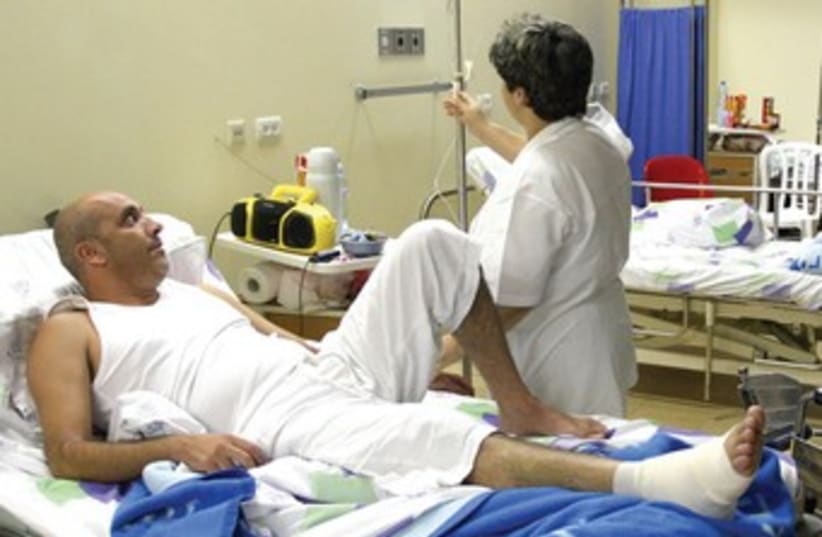PRENATAL COUNSELING Israeli women typically undergo several ultrasound scans and other tests during pregnancy. But what does one do if a problem is suspected in the fetus? A new clinic has now opened at Jerusalem’s Alyn Hospital, the national pediatric and adolescent rehabilitation center for children with serious physical disability due to genetic disease, accidents or other causes. The clinic will advise parents whose fetus is suspected of suffering from heart defects, spina bifida, skeletal defects, muscular disorders, cleft palate (which can easily be treated with plastic surgery) and other problems.Such parents will be able to consult with hospital director-general Dr. Maurit Be’eri or Dr. Eliezer Be’eri, the deputy director-general, a social worker and Rabbi Zvi Porat, who specializes in matters of medicine and halacha.Parents who want to have the baby despite suspected disorders will be told what capabilities the baby will have despite disabilities and what treatments can be offered. The Alyn director said she hoped the new clinic would relieve parents’ fears and worries and help them cope.ELIMINATING QUEUE FOR CHILDRENParents of children in the Bnei Brak area who need help for urological problems have had to wait for three months or more to get a consultation with a specialist.Now, the city’s hospital, Ma’ayanei Hayeshua, has announced the opening of a pediatric urology clinic that will eliminate the queue.It is being run by Dr. Bezalel Sivan, an Orthodox specialist in the field who did his residency at Schneider Children’s Medical Center and then his subspecialty at Cinncinnati Children’s Hospital, one of the leading institutions of its kind in the world. Referrals from the health funds are accepted. The medical center in the largely ultra-Orthodox city began primarily as an obstetrical hospital but has expanded to including many other services and departments.
Hypertension drugs benefit bypass patients
Vitamin D plays important antimicrobial role. It is known to help immune response, overcome bacteria encountered in hospitals.

PRENATAL COUNSELING Israeli women typically undergo several ultrasound scans and other tests during pregnancy. But what does one do if a problem is suspected in the fetus? A new clinic has now opened at Jerusalem’s Alyn Hospital, the national pediatric and adolescent rehabilitation center for children with serious physical disability due to genetic disease, accidents or other causes. The clinic will advise parents whose fetus is suspected of suffering from heart defects, spina bifida, skeletal defects, muscular disorders, cleft palate (which can easily be treated with plastic surgery) and other problems.Such parents will be able to consult with hospital director-general Dr. Maurit Be’eri or Dr. Eliezer Be’eri, the deputy director-general, a social worker and Rabbi Zvi Porat, who specializes in matters of medicine and halacha.Parents who want to have the baby despite suspected disorders will be told what capabilities the baby will have despite disabilities and what treatments can be offered. The Alyn director said she hoped the new clinic would relieve parents’ fears and worries and help them cope.ELIMINATING QUEUE FOR CHILDRENParents of children in the Bnei Brak area who need help for urological problems have had to wait for three months or more to get a consultation with a specialist.Now, the city’s hospital, Ma’ayanei Hayeshua, has announced the opening of a pediatric urology clinic that will eliminate the queue.It is being run by Dr. Bezalel Sivan, an Orthodox specialist in the field who did his residency at Schneider Children’s Medical Center and then his subspecialty at Cinncinnati Children’s Hospital, one of the leading institutions of its kind in the world. Referrals from the health funds are accepted. The medical center in the largely ultra-Orthodox city began primarily as an obstetrical hospital but has expanded to including many other services and departments.